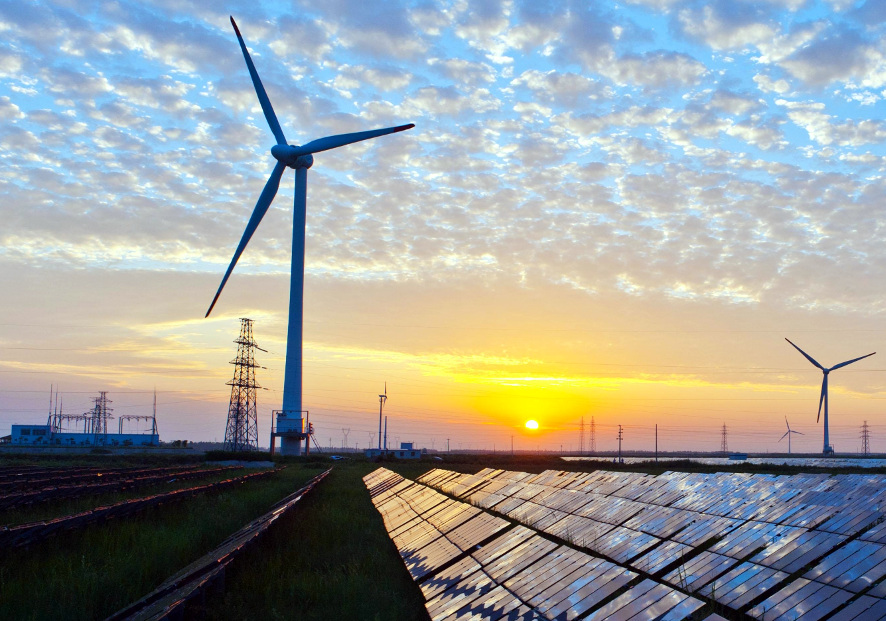How do we start a just energy transition in South Africa?
- Published:
Blog written by Lydia Mogano, Regional Coordinator for SAFCEI, attending COP23:
 © Wikimedia
© Wikimedia
How do we ensure that no one, especially the poor and most vulnerable are treated equally with respect, and integrity and that they are not left behind when addressing climate change because they are the forefront of experiencing climate impacts?
The United Nations Convention Framework Convention for Climate Change recognises that is vital to address climate mitigation and adaptation, and transition to a low carbon economy in an urgent, just and equitable manner. I believe that faith communities play a crucial role in increasing ambition regarding climate commitments and actions, increasing awareness (collective and individual reflections on relations with the environment), empathy, promoting justice (economic, environmental, gender and intergenerational), transparency, accountability, as well as facilitating dialogue and cooperation through solidarity in addressing climate change within and across countries.
Along with Adaptation, Loss and damage, I follow the Just Energy Transition discussions and Equity in its broadest within the implementation of the Paris agreement, which addresses how countries reduce their carbon emissions. To this end, I had an opportunity to attend a few events focused on energy (within and beyond COP 23) in Bonn and I find side events as important spaces for sharing and interrogating ideas, experiences, solidarity and support.
It was interesting to learn that South Africa is the only country which recognises the need to have a just energy transition in its Nationally Determined Contribution (NDC) as part of a process which is necessary to address climate change challenge and to achieve the sustainable development agenda. For South Africa, it is very difficult to talk about a just energy transition without talking about nuclear energy because it is a good example of an unjust administrative or decision-making process.
This is how we begin our transition to a low carbon economy and society, unfortunately. We (citizens) find ourselves in a situation where energy choices are imposed on us and we would have to pay for the costs (environment, social, and economic). This is not justice!
It is sad that Rosatom made a presentation about its nuclear business around the world, how it is affordable and safe to use and how it is still figuring ways to solve the nuclear waste problem. The presenter mentioned that Rosatom saw the need for South Africa and the rest of Africa to use nuclear as solution to its problems and in responding to my question (as a member of the South African community) he kept on emphasizing that it is the government that has to make the decision as if governments are completely independent from its people.
I have a problem with this approach: first, Rosatom, identifies a problem “for Africa” and then secretively signs deals to solve its problem. Second, I am not sure if his constant polarized orientation (i.e., government vs citizens) in his messaging is intentional (for whatever reason) or if this is how the company sees the world – still in boxes and silos?
As badly unequal as the South African society is, nuclear energy has great potentials in widening the gap between the rich and poor even further. We need to find ways to redress this socio-economic demise from the previous dispensation! Definitely, Nuclear energy is not the solution! It is unsafe and expensive and we cannot afford to allow communities to suffer in this new transition to a low carbon economy and society.
The same question arises again, how do we ensure that ordinary people do not remain “losers” within this energy transition economy? First things first, we must ensure transparency, and good ethical governance at all times.
All stakeholders and institutions must be consulted properly and comprehensively. There are reports from the CSIR which demonstrated how our economy can do without nuclear energy yet they are ignored. In another side event, I learnt about how businesses in South Africa are becoming more energy efficient as they had almost (on average) about 1.6 billion rands worth of savings over the past 2-3 years and how renewable energies (such as wind and solar) are such innovative solutions and are the future. Further, when many businesses increase their support for promoting renewable energy and efficiency, then we can do more without extra energy from nuclear.
Therefore, if many communities in South Africa are supported (e.g., enable feed-in tariffs and subsidize renewable energy technology effectively) and given equal opportunities to participate as both renewable energy producers and consumers, then we shall indeed be able to achieve a sustainable development together – we become all winners. This will be supported by transformation in the way we view the world and presents a positive way of life which would not feed the same unjust systems which perpetuate injustice or harm to the earth and people.
Who we are

SAFCEI (Southern African Faith Communities’ Environment Institute) is a multi-faith organisation committed to supporting faith leaders and their communities in Southern Africa to increase awareness, understanding and action on eco-justice, sustainable living and climate change.
Featured Articles
-

South Africa: Who Ends Up Paying If DMRE Cooks the Price of Nuclear Power?
-

South Africa’s nuclear energy expansion plans continue to draw criticism, environmental NGOs chew over legal challenge
-

Earthlife Africa and SAFCEI respond to latest unsettling nuclear news regarding the ministerial determination
-

Open Wing Alliance Africa (Virtual) Summit 2023
-

The Green Connection and SAFCEI respond to energy minister's divisive and deflecting comments
-

Job Vacancy: FLEAT Coordinator







